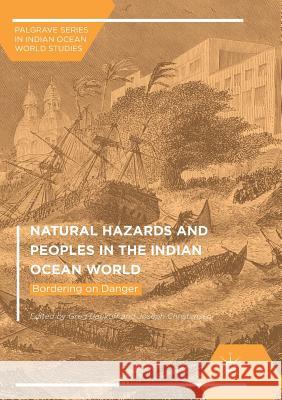Natural Hazards and Peoples in the Indian Ocean World: Bordering on Danger » książka
topmenu
Natural Hazards and Peoples in the Indian Ocean World: Bordering on Danger
ISBN-13: 9781349956586 / Angielski / Miękka / 2018 / 318 str.
Kategorie BISAC:
Wydawca:
Palgrave MacMillan
Seria wydawnicza:
Język:
Angielski
ISBN-13:
9781349956586
Rok wydania:
2018
Wydanie:
Softcover Repri
Ilość stron:
318
Waga:
0.40 kg
Wymiary:
21.01 x 14.81 x 1.78
Oprawa:
Miękka
Wolumenów:
01
Dodatkowe informacje:
Wydanie ilustrowane











